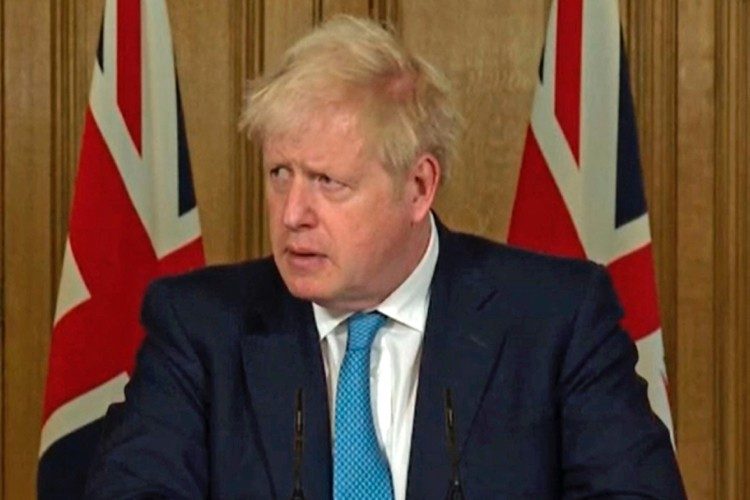
Citing an unwillingness of European Union negotiators to budge on key issues such as territorial fishing rights, United Kingdom Prime Minister Boris Johnson has ended high level negotiations with the bloc of nations over a deal that would have defined the future trade relationship between the UK and the EU.
The United Kingdom symbolically left the European Union on January 31 of this year. But that only started an 11-month transition period, during which the UK would still follow EU laws and continue to pay its member fees as a non-voting nation in the bloc. Now, with only 10 weeks until that transition period ends, negotiations have reached a stalemate.
“And since we only have ten weeks until the end of the transition period on January 1st, I have to make a judgment about a likely outcome and get us all ready,” Johnson told UK citizens. “And given they have refused to negotiate seriously for much of the last few months, and given this summit appears to explicitly rule-out a Canada style deal, I have concluded we should get ready for January 1st with arrangements which are more like Australia’s, based on simply principles of global free trade.”
Australian “arrangements” are basically no trade deal with the UK and EU operating on World Trade Organization terms.
UK negotiators have been pushing for a “Canada style” arrangement, similar to the EU’s trade agreement with Canada, which limits tariffs, increases product quotas, and allows government contracts between Europe and Canada.
But the EU contends that since the UK is much closer geographically than Canada, such an arrangement would not be feasible due to the much greater amount of trade anticipated.
Johnson’s announcement to halt negotiations came just hours after French president Emmanuel Macron demanded that the UK’s territorial waters remain open to EU fishermen.
“Under no conditions can our fishermen be sacrificed during Brexit,” Macron said at the Brussels summit on Thursday. “If conditions aren’t met, it’s possible we don’t have an agreement. We are ready for that. If there are no good terms found at the end of the discussion, we are ready for a no-deal.”
Macron argued that British territorial waters should be fair game for European fishermen. “We didn’t choose Brexit. It’s the British people’s choice. So protecting the access of our fishermen to British waters, finding a good compromise for our fishermen — and I’m talking about all European countries, including France — is an important point in this discussion for us.”
But Johnson insists that those fishing waters belong to the UK and accused the EU of trying to retain control of those waters as well as certain legislation in the United Kingdom.
“[The EU] want the continued ability to control our legislative freedom, our fisheries, in a way that is completely unacceptable to an independent country,” Johnson said.
Prominent Brexiteer Nigel Farage, who served in the EU Parliament for the UK for several years, noted that a no-deal Brexit was a foregone conclusion. In a tweet, Farage said: “A Canada-style deal was always impossible given the withdrawal agreement. Boris now reaching the right solution.”
Despite Johnson’s announcement, EU officials remain optimistic that the UK will return to the negotiating table. At a press conference, German Chancellor Angela Merkel said that negotiations, “as far as Europe is concerned, can continue as planned.” At the same time, Merkel was clear that the EU would not simply give in to the UK’s demands.
“As long as we have not reached agreement we, of course, have to keep in mind what will happen if we do not manage to reach agreement. Neither Great Britain nor the European Union wants an agreement at any price. I was clear in that regard. We are ready to continue to negotiate,” Merkel declared.
“If you do not reach an agreement of course you have to also take precautions, make preparations for no-deal Brexit. But, as I said, we won’t engage at any price,” Merkel said.
France’s Macron added: “We want an agreement and we are aware that this requires efforts particularly from the UK. But let’s keep in mind that it is the UK that wanted to leave the EU and needs an agreement much more than we do.”
Whether negotiations continue is anyone’s guess at this point. The UK has threatened to end talks before, but mainly as a negotiating tactic. Now with only 10 weeks left until the United Kingdom leaves the European Union once and for all, it’s probably past time for theatrics.
Both the UK and the EU claim they are now ready in case of a no-deal Brexit.



